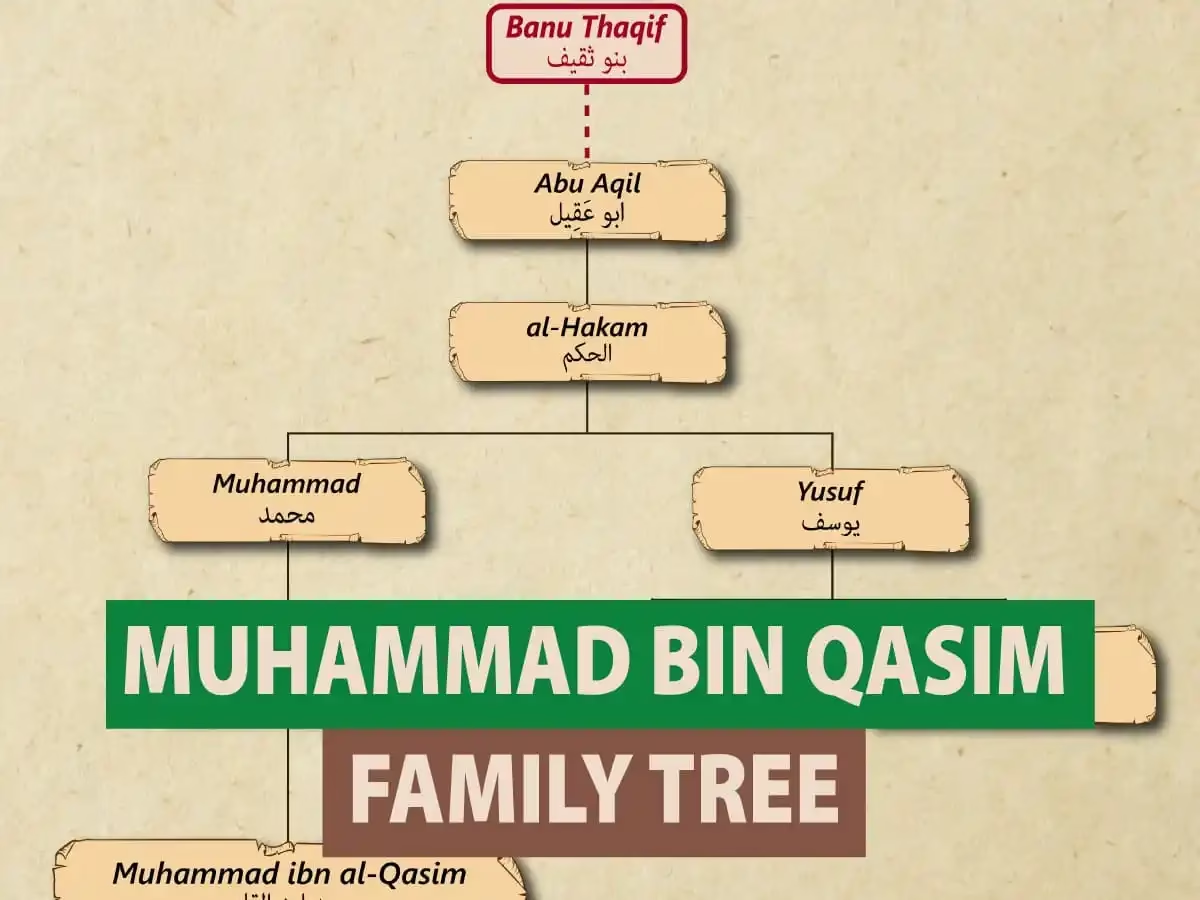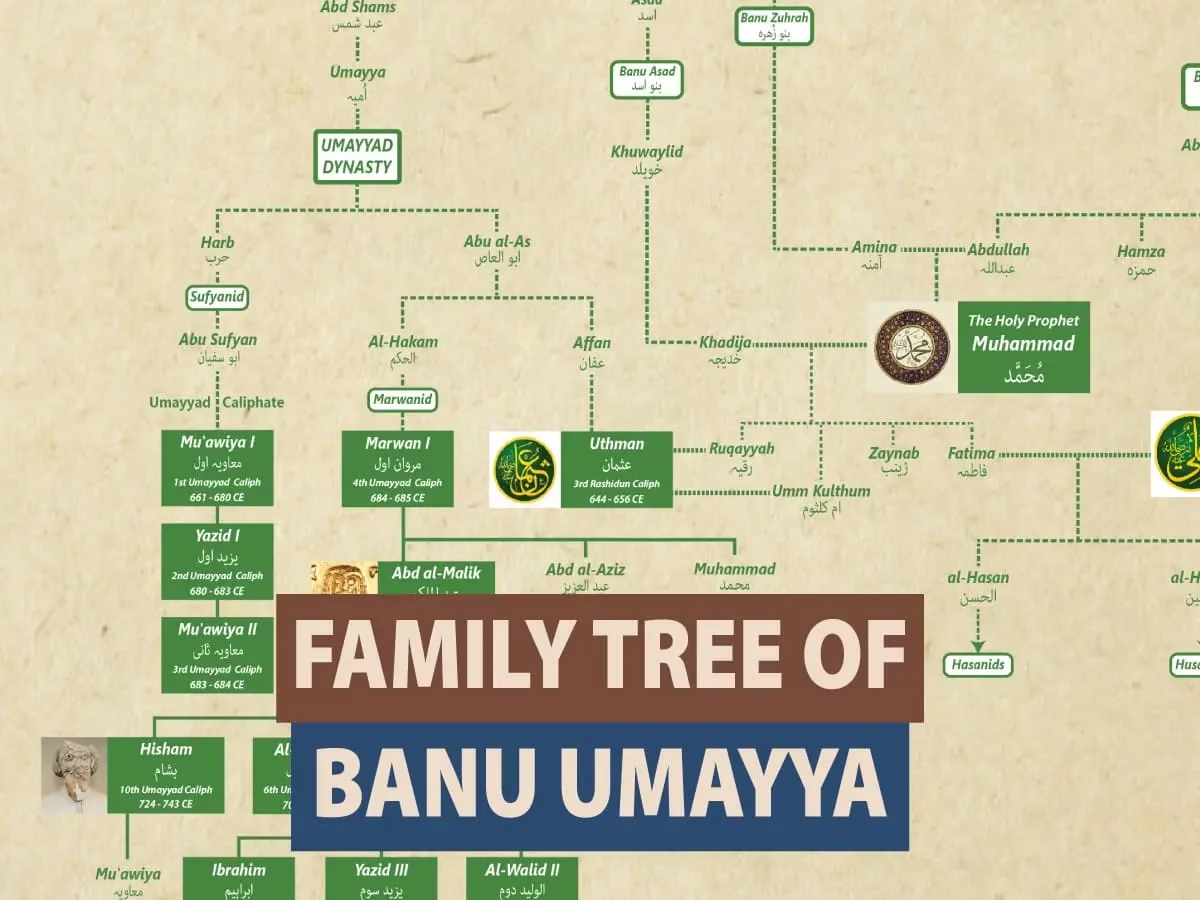The Banu Makhzum was one of the wealthy clans of the Quraysh. They are regarded as being among the three most powerful and influential clans in Mecca before the advent of Islam, the other two being the Banu Hashim, the tribe of the Prophet Muhammad (PBUH) and the Banu Umayya.
Leaders like Al-Mughirah and his son Al-Walid ibn Al-Mughirah defined the clan’s pre-Islamic stature, while Al-Walid’s sons—Khalid ibn Al-Walid, Al-Walid ibn Al-Walid, and Abu Jahl ‘s son, Ikrimah ibn Abi Jahl—transitioned from opposing Islam to becoming its staunch defenders. he infamous Abu Jahl (Amr ibn Hisham), a central antagonist of Islam, embodied the fierce resistance of the early Quraysh elite, while Umm Salama, a descendant of the clan, rose to prominence as a wise and compassionate “Mother of the Believers” (Umm al-Muʼminin). Their descendants continued to leave their mark, ensuring the Banu Makhzum’s enduring legacy of leadership and transformation.

Origins of Banu Makhzum
The Banu Makhzum traced their lineage to Makhzum, the son of Yaqza. This clan was part of the Quraysh tribe, descended from Fihr, an ancestor of the Prophet Muhammad (peace be upon him). Positioned among the elite tribes of Mecca, the Banu Makhzum were renowned for their military prowess, wealth, and leadership abilities.
See Also: Prophet Muhammad (PBUH) Family Tree: Quraysh to Imam Mahdi
Prominent Figures of Banu Makhzum
Makhzum (Founding Ancestor)
Makhzum, the progenitor of the clan, set the foundation for a powerful lineage. His descendants included warriors, leaders, and influential figures who played critical roles in Meccan society.
Al-Mughirah
Al-Mughirah was a key figure in the clan’s history and served as the chief of Banu Makhzum. He was revered for his leadership, wealth, and political influence, which helped the clan maintain its high status in Mecca.
Al-Walid ibn Al-Mughirah
Al-Walid, the son of Al-Mughirah, was among the wealthiest and most powerful men in Mecca. Known for his eloquence and pride, he was a fierce opponent of Islam during its early days. His opposition to Prophet Muhammad (peace be upon him) made him a symbol of the Qurayshi resistance. Despite this, Al-Walid’s legacy remains significant as a reflection of the struggles faced by early Muslims.
Abu Jahl (Amr ibn Hisham)
A prominent member of the Banu Makhzum, Amr ibn Hisham, nicknamed Abu Jahl (“Father of Ignorance”), was a fierce opponent of the Prophet Muhammad (peace be upon him). His animosity towards Islam earned him infamy, and he was a key figure in the persecution of early Muslims. Abu Jahl was killed in the Battle of Badr, marking a significant turning point in Islamic history.
Khalid ibn Al-Walid
Khalid ibn Al-Walid, the son of Al-Walid ibn Al-Mughirah, stands as one of the most remarkable figures in Islamic history. Initially an enemy of Islam, Khalid’s tactical brilliance led to the defeat of Muslim forces at the Battle of Uhud. However, after converting to Islam, he became one of its greatest champions. Earned the title “The Sword of Allah” (Sayf Allah), Khalid’s leadership in battles such as Battle of Mutah and Battle of Yarmouk contributed to the rapid expansion of the Islamic empire.
Umm Salama: The Mother of the Believers
Umm Salama (Hind bint Abi Umayya or Hind al-Makhzūmiyya), a descendant of the Banu Makhzum, holds a revered position in Islamic history as one of the wives of Prophet Muhammad (peace be upon him) and a “Mother of the Believers” (Umm al-Muʼminin). Known for her intelligence, wisdom, and devotion, Umm Salama contributed to the early Islamic community with her guidance and narration of hadith. Her life reflects the profound impact of women in the development of Islam.
Al-Walid ibn Al-Walid
Al-Walid ibn Al-Walid, the brother of Khalid ibn Al-Walid, was an early convert to Islam. His embrace of the new faith despite the hostility of his clan highlights the courage and conviction of the early Muslims. Al-Walid played a vital role in supporting the Muslim community and advocating for his brother Khalid to join Islam.
Ikrimah ibn Abi Jahl
Ikrimah, the son of Amr ibn Hisham (better known as Abu Jahl), initially followed in his father’s footsteps as an enemy of Islam. After the conquest of Mecca, however, Ikrimah embraced Islam and became one of its staunch supporters. His bravery and loyalty were evident in his participation in key battles, such as Yarmouk, where he fought valiantly for the Muslim cause.
Descendants of Key Figures
Descendants of Khalid ibn Al-Walid
The lineage of Khalid ibn Al-Walid continued his legacy of military excellence and leadership. Many of his descendants served as commanders and leaders in the early Islamic empire, particularly during the Umayyad and Abbasid periods. Their contributions to the spread of Islam and the administration of the vast caliphate are a testament to Khalid’s enduring influence.
Descendants of Al-Walid ibn Al-Walid
The descendants of Al-Walid ibn Al-Walid also played a significant role in the Muslim community. Their dedication to Islam and their efforts in strengthening the early Muslim state ensured that the legacy of the Banu Makhzum endured for generations.
Relations with Banu Hashim
The Banu Makhzum often found themselves in rivalry with the Banu Hashim, the clan of the Prophet Muhammad (peace be upon him). This competition was evident in both pre-Islamic and early Islamic periods, particularly regarding leadership and influence in Meccan society. Despite their rivalry, intermarriages and alliances occasionally bridged the divide between these clans.
See Also: Banu Umayya and Banu Hashim Family Tree
Role of the Banu Makhzum in Pre-Islamic Arabia
Before Islam, the Banu Makhzum were known for their dominance in trade and their military capabilities. They were one of the wealthiest and most respected clans in Mecca, alongside the Banu Hashim and Banu Umayyah. Their influence extended beyond Mecca, with their caravans playing a crucial role in the regional economy.
Conversion to Islam and Transformation
While many members of the Banu Makhzum initially opposed Islam, the clan experienced a profound transformation after the conquest of Mecca. Figures like Khalid ibn Al-Walid, Ikrimah ibn Abi Jahl, and Al-Walid ibn Al-Walid exemplify how the unifying message of Islam brought former adversaries into the fold, turning them into its strongest advocates.
Legacy of the Banu Makhzum
The Banu Makhzum’s legacy is multifaceted. They were warriors, leaders, and visionaries whose influence shaped both pre-Islamic and Islamic history. Their contributions to the early Muslim state, particularly in military campaigns and governance, ensured that their name remained prominent in Islamic history.
The story of the Banu Makhzum is one of transformation—from staunch opponents of Islam to some of its greatest supporters. It reflects the power of faith to bridge divides and create unity among even the fiercest rivals.
See Also: Banu Abbas Family Tree (Abbasid Dynasty)


